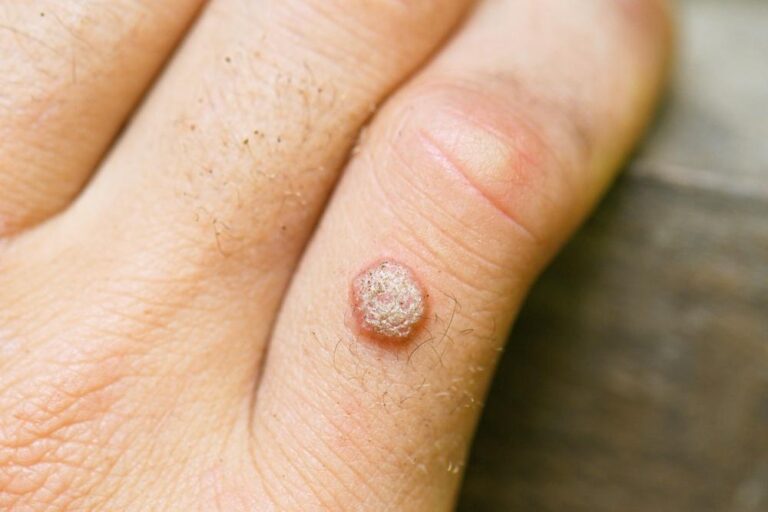Warts are common skin growths caused by the human papillomavirus (HPV). They can appear anywhere on the body and are characterized by their rough texture and cauliflower-like appearance. At our dermatologist’s office, we specialize in the diagnosis and treatment of warts, offering compassionate care and effective solutions to help patients achieve smoother, healthier skin.
Causes and Types: Warts are caused by various strains of HPV, which can enter the body through small cuts or breaks in the skin. There are several types of warts, including:
- Common Warts: These are firm, raised growths with a rough surface, usually found on the hands, fingers, or around the nails.
- Plantar Warts: These appear on the soles of the feet and may be flat or raised, often causing discomfort or pain when walking.
- Flat Warts: These are small, smooth, flat-topped growths that typically occur in clusters on the face, neck, hands, or legs.
- Genital Warts: Also called Condyloma Acuminatum, these are sexually transmitted warts that appear on or around the genitals and are caused by certain strains of HPV.
Treatment Options: While warts are generally harmless and may resolve on their own over time, many individuals seek treatment for cosmetic reasons or to alleviate discomfort. Treatment options for warts may include:
- Topical Treatments: Over-the-counter or prescription topical medications containing salicylic acid or other keratolytic agents can help remove warts by breaking down the outer layer of skin.
- Cryotherapy: This involves freezing the wart with liquid nitrogen, causing it to blister and eventually fall off.
- Radio Frequency Electrocautery : This procedure uses RF Cautery to burn or cauterize the wart, effectively removing it from the skin.
- Electrosurgery: This procedure uses an electric current to burn or cauterize the wart, effectively removing it from the skin.
- Laser Therapy: Laser treatment targets the blood vessels feeding the wart, causing it to shrink and eventually disappear.
- Immune Therapy: This involves stimulating the body’s immune system to attack and eliminate the wart, often through the use of topical medications or injections.
Prevention and Self-Care: While it’s not always possible to prevent warts, there are steps you can take to reduce your risk of developing them:
- Avoid touching warts, as they are highly contagious and can spread to other parts of the body or to other people.
- Keep the skin clean and dry, as warm, moist environments can promote the spread of warts.
- Avoid sharing personal items such as towels, razors, or nail clippers with others, as this can increase the risk of spreading warts.
At our dermatologist’s office, we offer personalized treatment plans tailored to each patient’s unique needs and concerns. Our experienced team is dedicated to providing compassionate care and effective solutions to help you achieve smoother, healthier skin. Contact us today to schedule a consultation and take the first step toward saying goodbye to warts for good.


